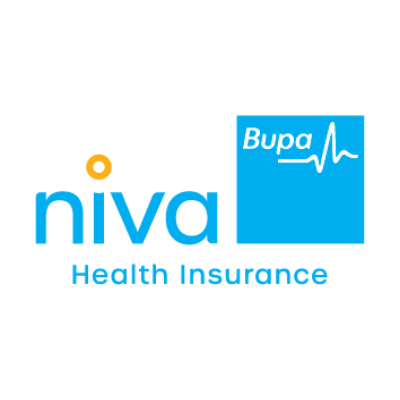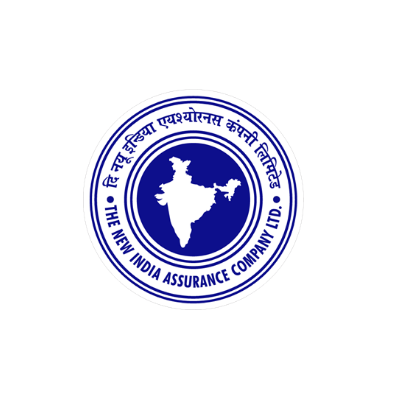KEY DIFFERENCES IN LIFE INSURANCE VS HEALTH INSURANCE
There is no direct comparison between life insurance and health insurance, as each serves a distinct purpose. Life insurance and health insurance are specifically designed to offer protection in different ways. Life insurance focuses on providing financial support to your family in case of your passing, while health insurance helps cover your medical expenses if you fall ill or require treatment. Each type of insurance plays its own role in securing your future and well-being.
According to 2023 data, life insurance and health insurance coverage in India saw notable growth, driven by increased awareness of financial protection. By the end of the fiscal year 2023, the insurance industry experienced a sharp increase in new business premiums (NBP) for life insurance, which grew by 17.9% year-on-year, reaching Rs. 3.7 trillion.
Private insurers contributed significantly, with their market share expected to rise to 40% by 2025. Meanwhile, the health insurance sector continued to expand, with more people opting for coverage due to rising healthcare costs and the ongoing effects of the pandemic.
Let us help you understand life insurance and health insurance step by step, including their differences and benefits.

What is Life Insurance?
Life insurance is a policy where you pay premiums regularly. In return, the insurance company promises to pay a sum of money to your family if you pass away. This amount helps your family manage their financial needs, such as paying bills, loans, or covering education costs, ensuring they don’t face financial hardships after your loss.
What is Health Insurance?
Health insurance assists you by covering medical expenses when you get sick or require treatment. Rather than bearing all the costs yourself, health insurance plans can cover some or most of the expenses, depending on the plan you choose.
Health policies can cover things like doctor visits, hospital stays, surgeries, and other medical costs. However, there are certain expenses that health insurance does not cover, such as elective cosmetic procedures, some alternative therapies, and non-prescription medications. Essentially, health insurance helps you avoid the stress of large medical bills when you need care.
What are the Key Differences Between Life Insurance and Health Insurance
|
Sr. no |
Aspects |
Life Insurance |
Health Insurance |
|
1 |
Purpose |
Life Insurance policy purpose is to provide financial support to beneficiaries after the policyholder’s death. It ensures their financial security. |
Health Insurance covers medical expenses incurred during the policyholder’s lifetime. It helps to manage healthcare costs. |
|
2 |
Coverage |
It provides a lump sum payment upon the insured person’s death, or diagnosis of terminal illness. Also, it includes benefits for critical illnesses. |
This insurance covers costs for doctor visits, hospital stays, surgeries, preventive care, and sometimes prescription medications. |
|
3 |
Premium Payments |
Generally, premiums are stable for term policies or may vary for whole life policies, which can accumulate cash value over time. |
Premiums can vary based on age, health status, and plan type, and are often higher for comprehensive plans. |
|
4 |
Policy Duration |
In life insurance; policy duration can be for a fixed term (term life, e.g., 10, 20, or 30 years) or whole life (permanent coverage that lasts for the insured’s lifetime). |
In Health Insurance, policy duration is usually annual or semi-annual; policies are renewable each year, but conditions may apply. |
|
5 |
Beneficiaries |
Payout goes to named beneficiaries (family, dependents), providing them with financial support after the policyholder’s death. |
No designated beneficiaries; coverage is for the policyholder’s medical expenses only. |
|
6 |
Tax Benefits |
Death benefit is usually tax-free for beneficiaries; premiums may qualify for tax deductions in some countries. |
Premiums may qualify for tax deductions depending on local laws; some benefits may be tax-exempt. |
|
7 |
Claim Process |
Claims in life insurance are made upon the policyholder’s death or diagnosis. It requires documents like: death certificate or medical certificate. |
Claims in health insurance are made for medical expenses. It involves submitting pills, treatment documents and claim forms. |
|
8 |
Renewability |
In this; term policy can be renewed at a higher premium. Whole life policies remain in force as long as premiums are paid. |
It can be renewed each year. Some of the health insurance policies allow lifetime coverage, but it depends on the insurer’s terms and the policyholder’s health status. |
|
9 |
Additional Benefits |
Additional riders or options, like accelerated death benefits, waiver of premium, and cash value accumulation. |
It includes wellness programs, preventive care coverage, and sometimes maternity and mental health services. |
|
10 |
Eligibility Criteria |
Generally requires health information, but coverage may be guaranteed for certain policies (e.g., guaranteed issue life insurance). |
Typically requires medical underwriting; pre-existing conditions may affect eligibility or premium rates. |
|
11 |
Financial Implications |
Provides long-term financial security and surety for beneficiaries; premiums are often considered an investment. |
Helps manage short-term financial risks associated with medical expenses; premiums are considered an ongoing |
|
12 |
Regulatory Oversight |
Regulated by life insurance laws and typically requires specific licensing for agents and brokers. |
Regulated by health insurance laws, which can vary significantly by region and often includes compliance with health care laws. |
Which One is Better: Life Insurance or Health Insurance?
Deciding between life insurance and health insurance depends on your personal needs and the type of protection you’re seeking. They serve very different purposes, so it’s not about which one is better, but rather which one best fits your situation.
Life insurance is about securing your family’s financial future if something happens to you. It ensures that your loved ones won’t face financial burdens, such as paying off debts or managing daily expenses, after you’re gone.
Health insurance, on the other hand, helps you cover medical costs when you’re unwell or need treatment. Instead of worrying about large hospital bills, health insurance takes care of most expenses, allowing you to focus on recovery.
Many people benefit from having both types of insurance since they provide different kinds of protection. Health insurance addresses short-term medical expenses, while life insurance focuses on long-term financial security for your family.
When to Choose Life Insurance:
- You have a family that relies on your income.
- You want to ensure that debts, like a mortgage or loans, won’t become a financial burden on your family.
- You’re focused on the long-term future and want to protect your family’s financial wellbeing in case of unexpected events.
When to Choose Health Insurance:
- You’re concerned about covering high medical expenses if you become ill or injured.
- You want coverage for essentials like doctor visits, hospital stays, and surgeries.
- You prefer protection against unexpected healthcare costs that could impact your savings.
Final Thoughts
Now that you understand the differences between life and health insurance, I hope you have a clearer idea of which type of insurance best suits your specific needs. Securing both your life and health with the right insurance is essential. Start by listing your coverage needs and the outcomes you expect. This approach will help you protect both your family’s future and your own.
Ready to choose the right life and health insurance plans? Compare your coverage needs with us and secure both your future and your family’s tomorrow, today.
Life Vs Health Insurance- FAQs
Q1. Which one costs more, life insurance or health insurance?
Ans: It depends on the plan, coverage, and your health. Generally, health insurance can be more expensive because you pay for it every year, whereas life insurance can have fixed premiums.
Q2. Do I need health insurance if I’m healthy?
Ans: Yes, health insurance is still important even if you're healthy. Accidents or unexpected illnesses can happen, and health insurance helps cover those costs.
Q3. Can I have both life insurance and health insurance?
Ans: Yes, you can have both, and many people do. Life insurance secures your family’s future, while health insurance protects you from medical expenses.
Q4. Can I add extra benefits to my life insurance policy?
Ans: Yes, you can usually add riders like critical illness coverage or accidental death benefits to your life insurance policy for additional protection.




































